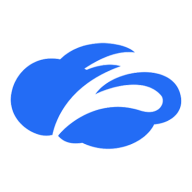


Find out what your peers are saying about Cisco, Infoblox, Palo Alto Networks and others in Domain Name System (DNS) Security.



Cisco Umbrella delivers rapid DNS security with over 30,000 customers, providing outstanding threat protection and handling more than 600 billion requests daily. It's recognized for high threat efficacy in the SSE domain and integrates elements like SWG, ZTNA, CASB, and more.
Cisco Umbrella is renowned for its effective DNS-layer security against ransomware and phishing. It offers flexible content filtering and integrates seamlessly with existing networks while providing single-pane-of-glass management for centralized monitoring. Its robust threat intelligence and customizable policies are central to its appeal. Users highlight room for improvement in areas like WHOIS data inclusion, malware enhancement, and reporting analytics. Integration with other threat feeds and better client support are requested for more comprehensive coverage.
What are the key features of Cisco Umbrella?Industries implement Cisco Umbrella primarily for DNS-level security, web filtering, and protecting remote employees. It strengthens cybersecurity frameworks by blocking malware and avoiding access to harmful sites. The tool is widely integrated with Active Directory and Cisco Meraki, providing consistent internet security for employees.
OpenText Core DNS Protection safeguards enterprise networks against cyber threats by managing DNS traffic. It ensures secure internet access through threat intelligence.
OpenText Core DNS Protection plays a critical role in network security by filtering malicious domains and preventing data exfiltration. It harnesses threat intelligence to offer enhanced visibility into network activities, enabling organizations to proactively combat potential cyber threats. This enhances trust and reliability in digital communications, ultimately safeguarding sensitive information from unauthorized access.
What are the key features of OpenText Core DNS Protection?OpenText Core DNS Protection implementation varies across industries like finance and healthcare. In finance, it protects sensitive transactions from cyber threats, while in healthcare, it ensures patient data confidentiality by securing network communications. Its adaptability to industry-specific needs makes it an essential part of digital infrastructure.
Zscaler Internet Access is a cloud-native security service edge (SSE) platform. Its main purpose is to provide AI-powered protection for all users, all applications, and all locations. The solution replaces other legacy network security solutions to stop advanced attacks and prevent data loss by using a comprehensive zero trust approach.
Zscaler Internet Access Features
Zscaler Internet Access has many valuable key features. Some of the most useful ones include:
Zscaler Internet Access Benefits
There are several benefits to implementing Zscaler Internet Access. Some of the biggest advantages the solution offers include:
Reviews from Real Users
Below are some reviews and helpful feedback written by Zscaler Internet Access users.
A Service Manager at a construction company says, "There are a bunch of different capabilities that are valuable within the platform. We use quite a lot of them, but not everything. The ones that are most important to us are the URL Filtering and the application control. For our needs, the cloud-native proxy architecture is a very good solution. This architecture helps with cyber threats because we inspect most of the traffic and we can see that a lot of threats are stopped directly in the secure web gateway."
Owen N., Security Architect at Claro Enterprise Solutions, explains that the solution’s most valuable features include “The integration of the gateway that inspects all ports and protocols. So, there is threat prevention; The cloud sandbox; VNS security; Access control that will protect URL filtering and the cloud firewall; Data protection that will protect your gateway, like your CASB or your cloud DLP; The capabilities of this will point your traffic to Zscaler Cloud.”
An Architecture Senior Manager at an insurance company mentions, "The data loss prevention feature is the most valuable. It stops our users from inadvertently leaking our customers' data to the Internet or anywhere else it shouldn't go." He also adds, “The solution provides quick access to cloud services, securing our data and allowing us to inspect all our traffic.”